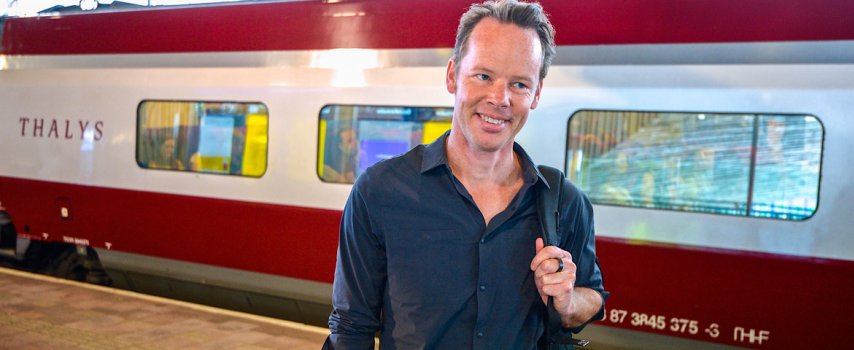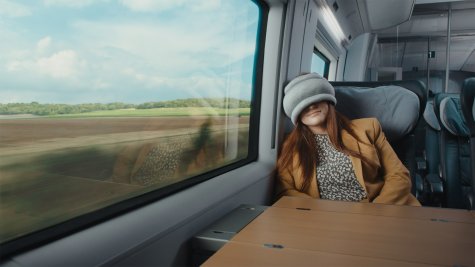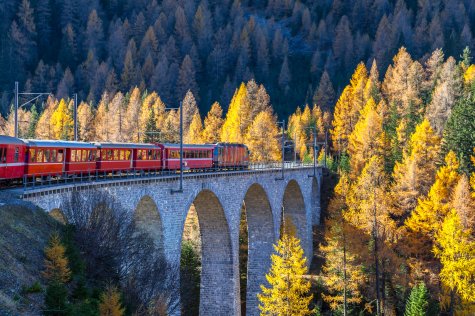Travel with Sijbrand Tieleman – Founder of the investment app Peaks
NS International travels together with a number of business travellers. How do these travellers spend their travel time and what does travelling mean to them? This episode, we travel with Sijbrand Tieleman, founder of the investment app Peaks.
Sijbrand, where are we going today?
"We're going to Paris for market research. We're working on an international roll-out of the Peaks app. This app helps you invest your spare change. You can put money aside without it directly influencing your expenses. Might seem simple, but there aren't many people who do this. I think it's essential for everyone to start working on their financial future, as early as possible. The great thing about Peaks is it's accessible: no knowledge or money is needed to be able to invest.
“To find out whether there is any interest in this in the French market, we’re going to approach parties and talk to people on the fly," laughs Sijbrand. “Things went very well in Germany, so I'd say: let’s go!”
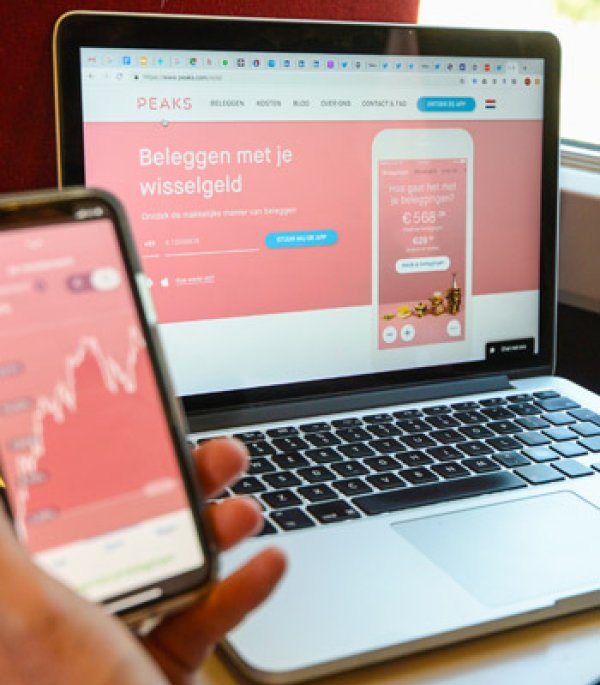
So, you travel to a lot of countries?
"I travel every 2 to 3 months to various destinations such as Antwerp, Brussels, Paris, Frankfurt, Düsseldorf, but I've also been through the Swiss mountains. So, I visit these destinations for business development and preliminary talks for market research, as well as conference visits. That's more of a networking thing.”
Why choose to travel by train?
“Due to a combination of factors: it’s a lot more environmentally friendly than travelling by car or - even worse, by plane. But above all, I find it very comfortable. I hate the car. You spend hours on end watching the road while being 100% focused, and, if you’re unlucky, you also have traffic jams. Such a shame! On the train, I can spend my time usefully by working. Before I get on board, I buy a coffee and a magazine like Bloomberg Business Week and my working day starts while I’m travelling.”
"I like the train; you can spend your time efficiently and look outside once in a while, and notice that you’re somewhere new."
Do you do different activities on the outbound journey compared to the return journey?
"Now that you mention it, sometimes, there's a difference between the two! I generally work. Especially when I return from a meeting. I then immediately process the action points and send the necessary emails. I download the NRC and call people. If I have an extended trip, or more free time, I sometimes read an e-book and drink a glass of wine. Relaxing is also very important, and it's easy to do when watching the passing landscape."
How do you experience business travel?
"Anyone who says that travelling is super-relaxed because you spend the night in hotels and don't have to cook is only partly correct. Travelling is intense and requires a lot of energy. The days are long; you have to get up early and are ‘back’ late. The latter is not always nice, but you sleep best in your own bed. Of course, there are two sides to everything, because it's nice to meet new people and discover new places. That's why I like the train; you can spend your time efficiently and look outside once in a while, and notice that you’re somewhere new.”
What characterises you as a traveller?
“My efficiency. I think it's important to be on time. Not ‘just on time’ so you have to run. I make sure that I get a coffee or breakfast in the minutes before I leave, so that I can start my day well. Experience has taught me to always plan from door-to-door. So, I use apps for that: how could I otherwise? I go through the world in a multimodal way."
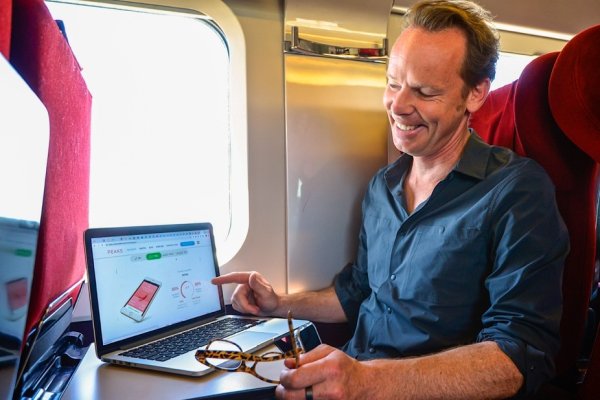
'That's how I get the most out of my trip'
On her way to London, Coby van Dongen, commercial director of De Jong Intra Vakanties, explains why she prefers to take the train.
Outbound journey is for work, return trip for relaxation
Research agency MetrixLab has conducted a survey among 200 international business travellers on how they spend their travel time. Curious?
